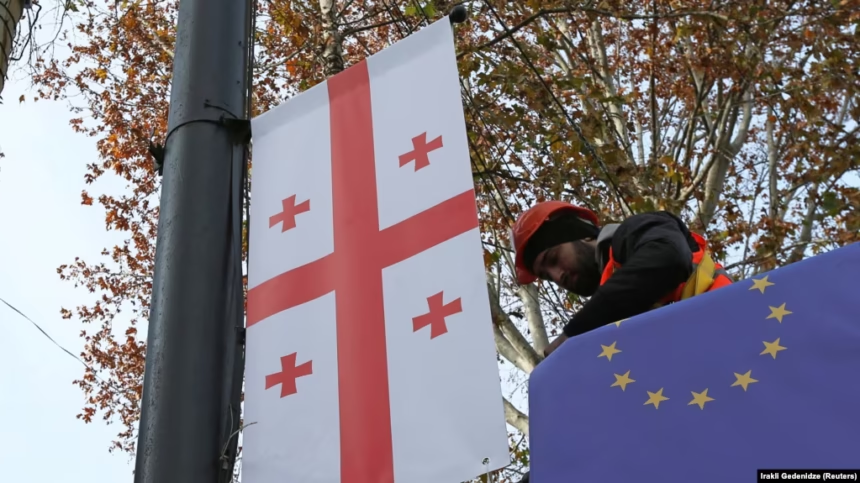The Georgian government has strongly criticized the European Union following a critical assessment of the country’s progress toward EU membership, accusing Brussels of interfering in its internal affairs.
Presenting the annual enlargement report, EU High Representative for Foreign Policy Kaja Kallas stated that Georgia “does not have a sustainable path to the EU at this stage unless circumstances change dramatically.” The report cited repressive measures against political opponents and a perceived political shift toward Moscow as key concerns undermining EU-Georgia relations.
In response, Georgian Parliament Speaker Shalva Papuashvili accused the EU of “blackmail,” claiming that pressure on Georgia would not succeed. “A bureaucracy filled with hidden political agendas, arrogance, and disregard for countries that exercise independent decision-making and sovereign rights,” he said.
The EU enlargement report serves as a benchmark for candidate countries, including Albania, Bosnia and Herzegovina, Montenegro, Georgia, Kosovo, Moldova, North Macedonia, Serbia, Turkey, and Ukraine. While several countries were praised in the 2025 report, Georgia was criticized for a “serious democratic backslide.”
Once considered one of the most democratic and pro-Western post-Soviet states, Georgia is now being viewed as increasingly authoritarian, with policies seen as favorable toward Russia. Relations with the EU further deteriorated after anti-LGBT legislation and the “foreign agents” law, which led to a temporary suspension of accession talks.
Tensions escalated following October 2024 parliamentary elections, in which the ruling Georgian Dream party retained power, froze EU accession negotiations, and accused Brussels of attempting to orchestrate a coup in Tbilisi.
The Georgian Ministry of Foreign Affairs stated that the government “condemns any attempt to use EU accession as a political instrument,” emphasizing that the country maintains a stable macroeconomic environment and high economic growth, raising questions about the objectivity of the EU’s assessment.
While the Georgian Dream party asserts its continued support for EU membership, it insists that accession must preserve traditional Orthodox values and maintain “peaceful relations” with Russia.
Gigi Gigiadze, senior fellow at the Tbilisi-based Center for Economic Policy Research and former Georgian ambassador to Denmark and Iceland, told RFE/RL that the situation could spark further protests, as most Georgians support EU membership and sanctions against Tbilisi. “Time is working against all of us, against the Georgian people,” he warned.







